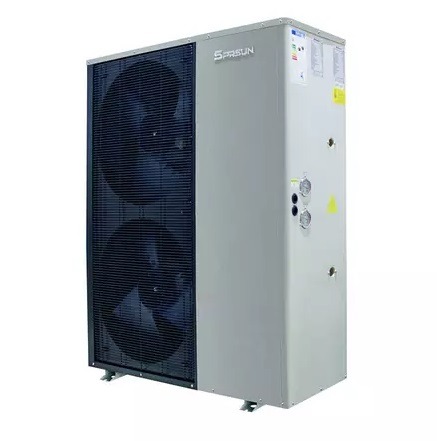In the past few decades, home heating has undergone a revolution, with traditional boiler furnaces giving way to heat pumps and then to heat pumps with inverter technology. This last innovation has been the real game-changer, allowing heat pumps to operate effectively even in extreme weather conditions. However, being relatively new, there is still some debate about whether it is more efficient than fixed output heat pumps. This post aims to highlight all the critical points on this issue. Read on to discover more.
How does the inverter heat pump efficiency differ from the fixed output system?
Inverter heating systems are more energy efficient compared to fixed output systems. The intricate inverter heat pump coefficient performance (COP) ranges from 3 to 5 depending on the air source or ground source heat pump. Even so, each Kilowatt of electrical current needed to run the inverter heat pumps returns about 3-5kW, which is more efficient than a fixed output heat pump by 300 percent or more.
Most of this efficiency is achieved by non-stop heating, which may be regulated to low temperatures depending on the heating demand. It, therefore, maintains a constant, uninterrupted temperature throughout the home. This saves a lot of energy as the home need not be heated from scratch whenever someone wants to use it.
Inverter heat pumps are like home thermostats; they adjust the background heat to keep a consistent temperature. They respond to changes in temperature demands and try to maintain minimal heat fluctuations. On the other hand, fixed output heat pumps cycle continuously between the full heating level and zero. They also consume more energy to get the correct temperature balance.
What’s the range of efficient performance in inverter heat pumps?
Inverter systems can function well under a variety of conditions and speeds. The inverter heat pump’s compressor usually operates between 15 and 100 revolutions per second. However, this speed range begins to cause some deterioration at 65-70 rps. The device still functions between 30 and 70 rps during the warmer months. A closer look at the data throughout the year shows that the inverter system is still quite effective.
No, when it comes to hot water outputted by inverter units, the device may optimize its performance for boiling. If the compressor runs at 40 to 80 revolutions per minute, water temperatures up to 60°C can be produced.
Even though you will achieve the same final degree, the drawback is that you have to heat the water from an initial degree of zero. This increased energy consumption. As for the inverter heat, the background heat can maintain pump water temperatures.
Will a fixed-output heat pump allow temperature control?
Inverter heat pumps are precisely when it comes to managing the ambient temperature of your home. This is because a floor terminal is deployed to deliver precise details to the inverter about the required room temperatures. This data changes the heat degree to get the desired temperature, so you won’t have to worry about heat spikes.
Should I choose a fixed output over an inverter heat pump to avoid repairs?
It depends on your needs when deciding between a fixed output and an inverter heat pump. If you want to avoid repairs, you might lean more toward the fixed output. But if you’re looking for something more energy-efficient, then the inverter heat pump might be a better option.
Standard heat pumps have a lifespan of 2-3 decades when properly maintained and serviced regularly. However, like with any electrical device, certain elements only got shelf life. A significant objection against heat pumps with inverter technology is that they have sophisticated parts with a shorter lifespan.
Even so, they aren’t less dependable than the fixed output heat pumps. Fixed output heat pumps also contain a micro-control and soft starter, identical to the ones in inverter heat pumps. Regrettably, these components occasionally cause failures.
Even so, the heat pump business is continually evolving, so finding replacement parts for these heat pumps is no longer as difficult as it used to be. Several manufacturers, such as SPRUSN, now provide extensive service and have replacement parts on hand. If the inverter units develop a defect, repairing them does not have to be complicated or expensive.
Take away
SPRSUN heat pumps have been a reliable home heating source for many families since 1999. The company offers a wide range of options when it comes to heat pump models, but SPRSUN inverter pumps are some of the most popular.
These models offer efficient energy use and the ability to connect to the internet for remote temperature management. An added bonus is the 3-year warranty that comes with free repairs. SPRSUN is a trusted name in the heat pump industry, known for its quality products and excellent customer service.

